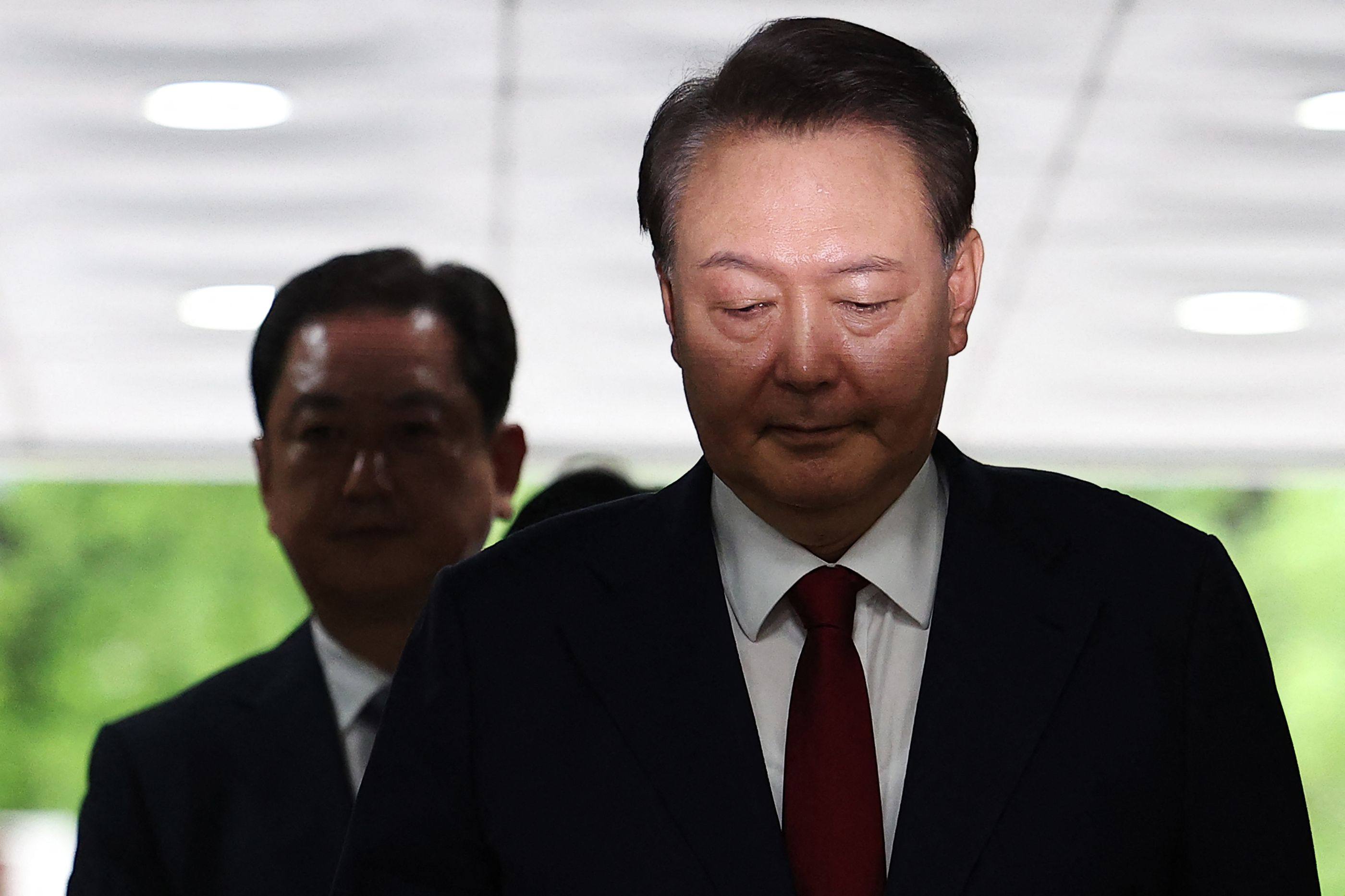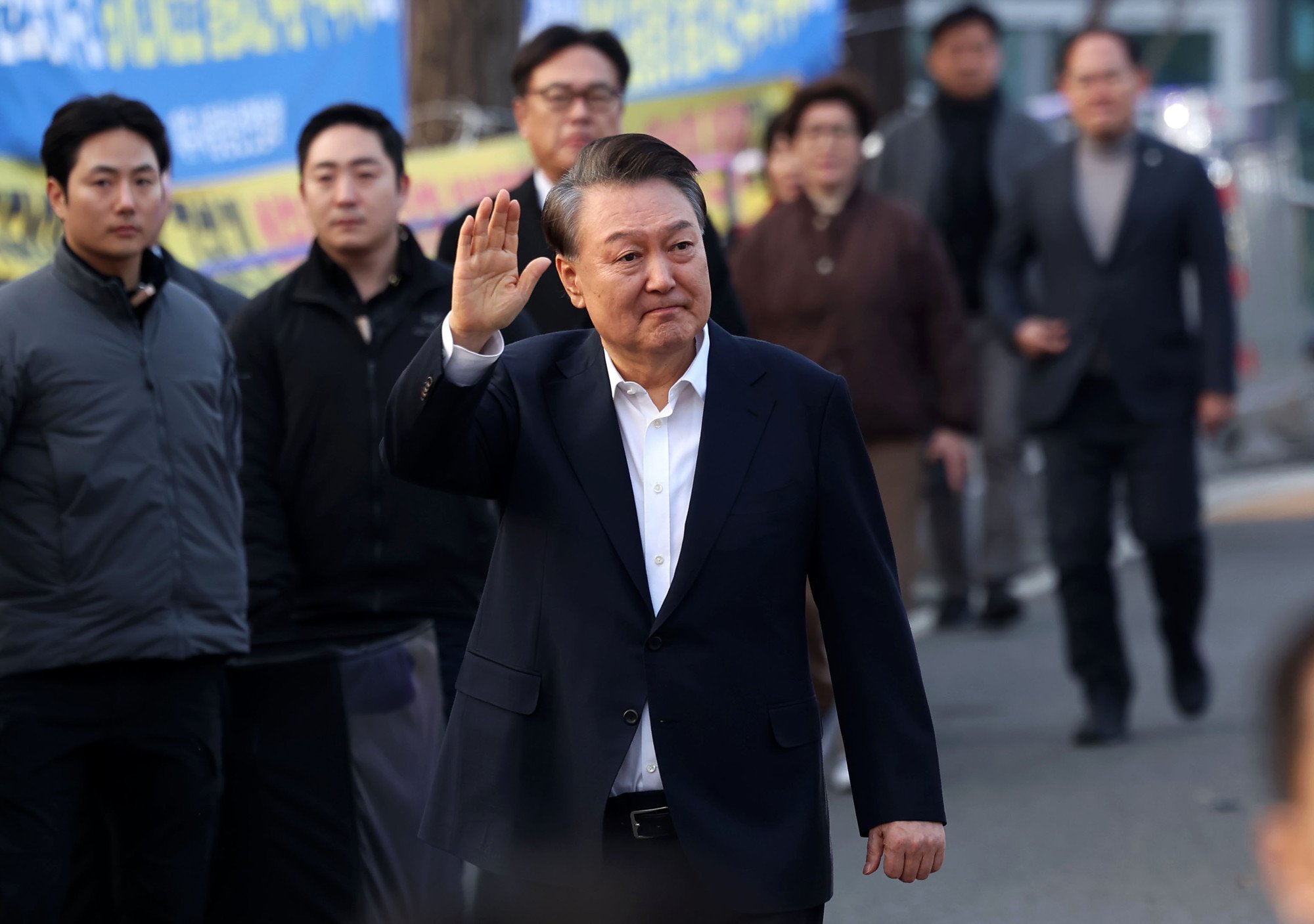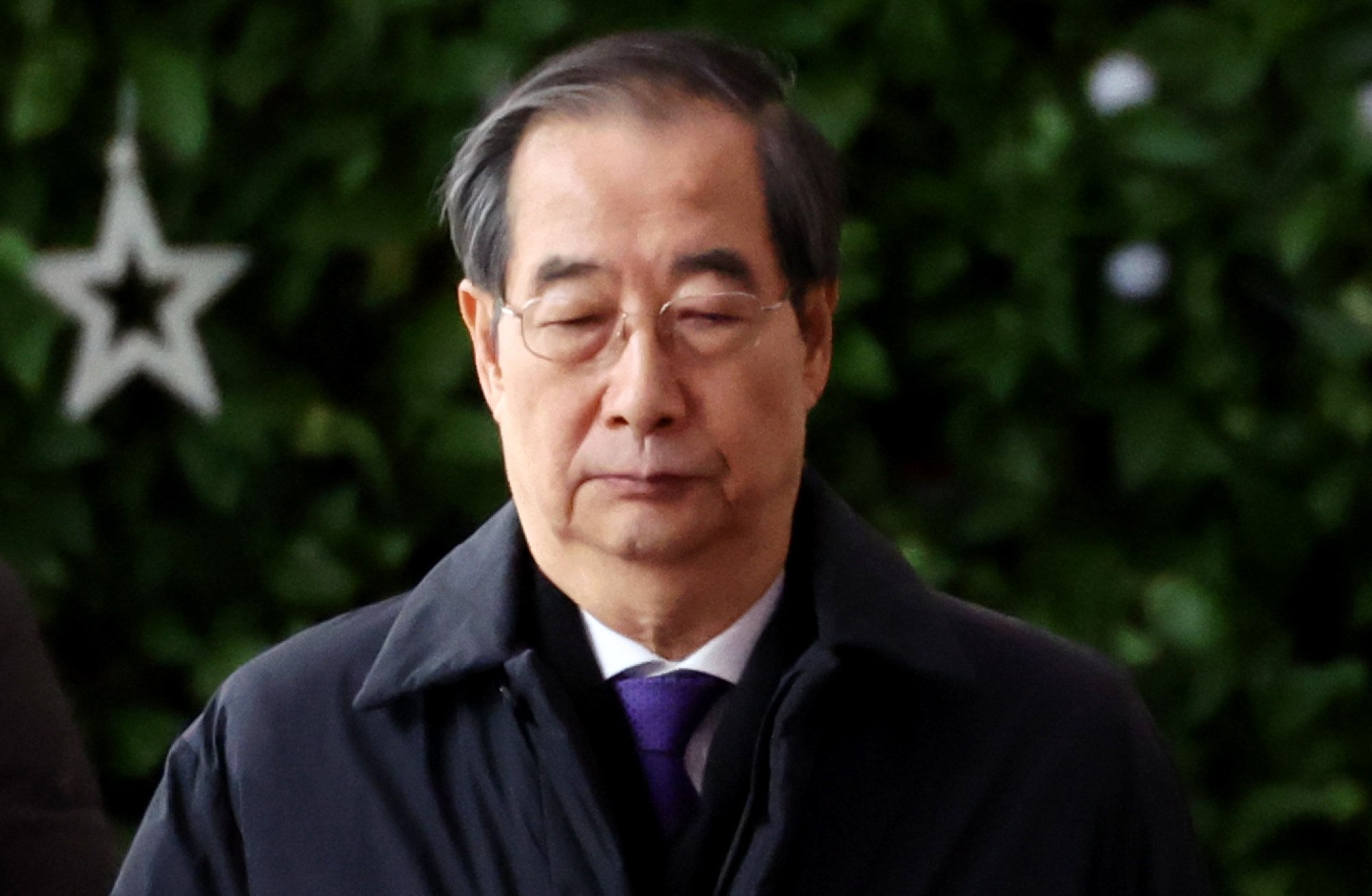South Korea’s ex-president Yoon hauled back into court for rearrest hearing
Prosecutors argue the ex-president is a flight risk and could tamper with evidence. His earlier release emboldened co-defendants, critics say

South Korea’s efforts to hold ex-president Yoon Suk-yeol to account for his attempted martial law declaration reached a dramatic juncture on Wednesday, as he arrived at court amid tight security and a fierce public debate over the nation’s handling of his abortive martial law declaration.
Dressed in a dark suit and red tie, the 65-year-old appeared before the Seoul Central District Court for a hearing to decide whether to send him back into custody or allow him to remain out on bail while standing trial.
Police maintained order as small but vocal groups of Yoon’s supporters, waving flags and chanting slogans, gathered on the street corners outside. A convoy of vehicles transported Yoon the short 350-metre (383-yard) distance from his home to the courthouse.
The impeached former leader ignored questions from journalists as he entered the courtroom, flanked by his legal team.
After several hours of questioning, Yoon will await the court’s ruling – expected between late Wednesday and early Thursday – either at Seoul Detention Centre or the holding facility at the Seoul Central District Prosecutors’ Office.
With Yoon back behind bars, his former subordinates and co-conspirators would likely feel safer confessingLee Jun-han, politics professor
“His arrest would signal that the special prosecutor’s efforts to hold those responsible for the insurrection accountable are gaining real traction,” Professor Jhee Byong-kuen, a political scientist at Chosun University, told This Week in Asia.
Amid accusations that state prosecutors have been reluctant to pursue charges against their former boss, a special counsel was appointed last month to investigate Yoon’s short-lived martial law decree on December 3.
Once prosecutor general, Yoon spent most of his adult life within the prosecution service, cultivating an extensive network of allies across the legal establishment.
He was first arrested on January 15 after investigators’ earlier initial attempt to enter his heavily guarded residence was was thwarted by armed presidential security agents.

Yoon spent 52 days in detention before his release on March 8, after a panel of judges at the Seoul Central District Court ruled that his confinement could not continue due to legal technicalities – a decision that provoked widespread public outcry.
Critics argued that the ruling emboldened Yoon’s co-defendants, including former military generals now facing trial for their role in the martial law plot. With Yoon freed, other suspects reportedly hesitated to cooperate with investigators.
“With Yoon back behind bars, his former subordinates and co-conspirators would likely feel safer confessing, knowing he can no longer protect or retaliate against them,” said Lee Jun-han a professor of politics at Incheon National University.
On Sunday, Special Prosecutor Cho Eun-suk formally requested Yoon’s arrest, describing the ex-president as a flight risk and citing the possibility of destruction of evidence and witness tampering.
The 66-page arrest warrant outlines five principal charges, among them allegations that Yoon hand-picked certain cabinet ministers to brief on the impending martial law declaration, thereby preventing other officials from carrying out their constitutional responsibilities to review state affairs.
Other accusations include the alleged forgery of documents pertaining to the decree, obstruction of law enforcement by ordering his security detail to block his arrest, and instructing aides to destroy encrypted phones used by key figures in the plot.
Unhandled type: inline-plus-widget {“type”:”inline-plus-widget”}
His legal team has dismissed all the charges as “groundless”.
Because Yoon has already been charged with insurrection and released by the court overseeing the martial law case, the special prosecutor cannot seek his arrest on the same charge.
In their application, prosecutors accused Yoon of “blatantly disregarding the law”, despite having styled himself as one of its greatest defenders during his tenure as prosecutor general.
“Rather than reflecting on his crimes, he continues to justify the martial law declaration – rejecting the country’s criminal justice system and disrupting its democratic order,” the leaked document says.

Last week, Special Prosecutor Cho’s team widened the investigation, questioning former prime minister Han Duck-soo and several other ex-cabinet ministers over their alleged involvement in the martial law plan.
Han, who lost his bid to become the ousted People Power Party’s presidential candidate in the June 3 election – won by opposition leader Lee Jae-myung – is accused of assisting Yoon with legal procedures related to the decree.
The special counsel has also warned that Yoon could defy a future court order and incite violence among his supporters, as witnessed on January 19, when demonstrators stormed and vandalised Seoul Western District Court following his initial arrest.
Separately, a second special counsel is investigating Yoon’s wife, Kim Keon-hee, on 16 charges, including two counts of stock manipulation, election interference and multiple bribery allegations.
On Wednesday, President Lee’s ruling Democratic Party accused Kim of involvement in the alleged cover-up of a marine’s death in 2023, which is also under investigation, and has suggested she may be implicated in the insurrection case as well.
“It must be clearly revealed to what extent Kim Keon-hee … was directly or indirectly involved in Yoon’s martial law decree,” the party said in a statement.